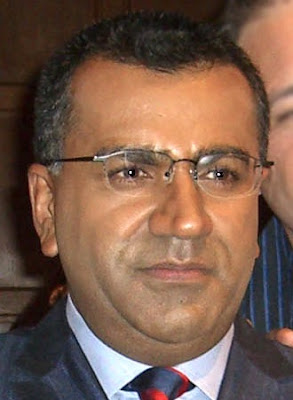Concerns over the way Princess Diana was interviewed by Martin Bashir twenty-five years ago have left a dark cloud hanging over BBC journalism, according to a former boss of the Corporation.
The Princess was interviewed by Bashir for a special 1995 edition of the BBC's flagship current affairs programme Panorama.
However, allegations have now surfaced - and the BBC accepts them - that bank statements were fabricated in order to secure the Princess's participation in the bombshell interview, which ultimately resulted in her being cut adrift from the Royal Family.
Earl Spencer, the Princess's brother, reportedly raised concerns about the conduct of interview with BBC Director General Tim Davie. The Earl alleges, to put not too fine a point on it, that Bashir spun the Princess a yarn and psychologically manipulated her in order to get the scoop.
These included false claims that:
- MI6 had tapped the Princess's phone;
- The Princess's bodyguard was conspiring against her;
- MI6 had recorded a telephone call between Prince Charles and his private secretary plotting "the end game";
- Prince Charles was "in love" with nanny Tiggy Legge-Bourke and the couple went on secret holidays together;
- The Queen was "a comfort eater" who had "heart problems".
In 1996, the BBC carried out an internal review of Bashir's behaviour which judged that the fake bank statements - forged by a BBC graphics designer - had not helped to gain the interview.
But the fake dossiers showed that a former employee of Spencer's had been selling information about the family. Bashir claimed that they had been given to him by a source in the intelligence community, The Sunday Times reported.
A 1996 BBC investigation into the matter said: "The BBC has been able, independently, to verify that these documents were put to no use which had any bearing, direct or indirect, on the Panorama interview with the Princess of Wales."
It would now appear that the dodgy bank statements were the tip of the iceberg.
Bashir, who is now the BBC's religion editor, is conveniently off work at the moment, supposedly "seriously unwell" after a heart operation, despite being photographed out shopping a few days ago.
Baron (Michael) Grade of Yarmouth, a former chairman of the BBC, said that the allegations against Bashir were "a very, very serious matter".
Speaking on BBC Radio 4's World at One programme earlier today, Grade said there was "dark cloud hanging over BBC journalism".
He added: "There needs to be an immediate independent inquiry announced, and the results of that inquiry need to be published."
This story has gathered considerable traction over the last few days, so stay tuned for further developments.






